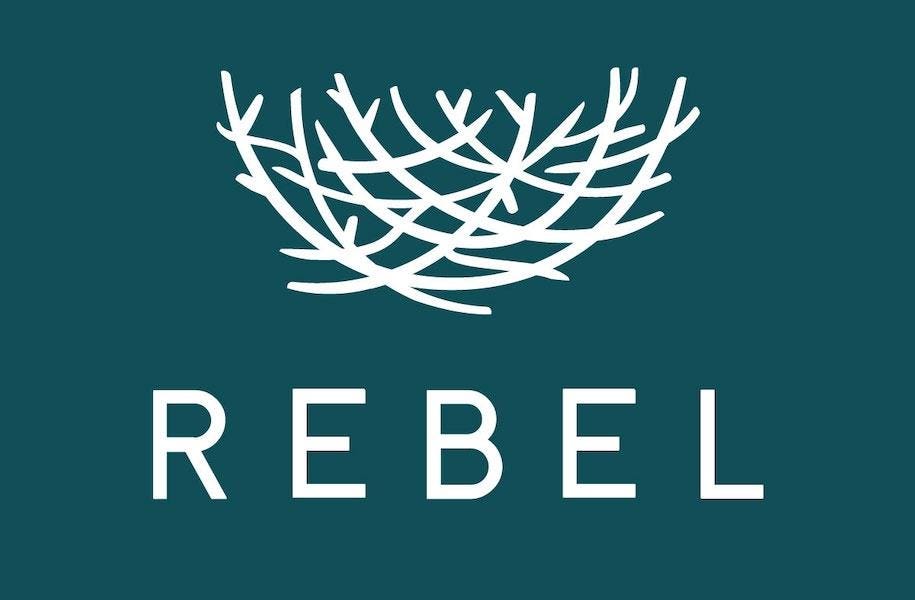On March 11, 2025, open-box and overstock retailer Rebelstork announced an official rebrand to REBEL, along with an expansion into the home goods category. This marks the company’s most significant update since securing a Series A investment in fall 2024.
Founded in 2020 by CEO Emily Hosie, REBEL was born from her experience in the off-price industry, having worked at both Saks Off Fifth and the TJX Companies. During her first pregnancy, she recognized a gap in the market for discounted baby gear—something many families could benefit from. As she established her brand, she realized that the impact of returns on the environment was astounding.
The Problem With Baby Gear
From car seats to cribs, every decision—especially for first-time parents—feels like a major one. With inflation driving up costs on goods, the financial weight of starting a family feels heavier than ever. In fact, a new BabyCenter study finds that it now costs more than $20,000 to raise a baby in the first year alone. Still, when it comes to baby gear, parents aren’t willing to compromise on quality—they want the brands they trust and love at a more affordable price. So, open-box items that have never been used can help bridge this gap.
And after Hosie uncovered that when simply opened but never used baby gear is returned, the large majority gets dispositioned into landfills due to regulation complexities, she realized there was a mutually beneficial solution for consumers, brands—and the planet. “Baby gear is arguably one of the hardest categories to navigate, where regulations and repackaging complexities make returns re-commerce even more challenging,” explains Hosie. “Successfully building trust in this space through education and rigorous quality control has allowed us to establish strong relationships with retail/brand partners and gives our customers the confidence to purchase open-box for their little ones.”
From Rebelstork To REBEL
Hosie shares that the expansion to home goods was inspired by REBEL’s customers. “We saw a huge opportunity to take the technology and community that we’ve built in the baby gear industry and apply it to a broader category: home essentials. The inspiration came directly from our community and our brand partners, who wanted the same trusted, open-box experience beyond baby products.”
These additional categories also broaden the brand’s reach. “Now, we can meet customers at different phases of life—whether they’re furnishing their first apartment, building their wedding registry, or preparing for a new baby. With the cost of living continuing to rise, Gen Z and Millennials are actively seeking value on the brands they love.”
The new home category includes top brands such as KitchenAid, Cuisinart, and Nespresso among others. “In general, everyday necessities like kitchen appliances and cookware are in high demand, but we also have a nice variety of bath, tabletop, and storage essentials,” says Hosie.
While REBEL currently partners with more than 2500 brands—that number is rapidly growing. “We’re continuously onboarding new brands every week! Our inventory is always changing, which makes for a fun shopping experience,” Hosie explains. “Because we focus on returned items, that popular air fryer or hot appliance you’ve been eyeing is likely to pop up in our marketplace! While baby gear and home are our focus right now, there’s so much more opportunity across the retail space to continue expanding in the future.”
The Environmental Impact Of Returns
While returns are essentially a minor inconvenience to consumers, they have a major environmental impact. In 2024, retail returns totaled nearly $1 trillion ($890 billion), accounting for 17 percent of total sales, according to the NRF. And due to the regulation complexities of restocking many of these items, a large majority will never make it back to shelves. As a result In fact, 9.5 billion pounds of returned goods—equivalent to 10,500 fully loaded Boeing 747s—end up in landfills each year.
“This has a lot to do with the convenience of online shopping and customer-friendly return policies, which have reshaped consumer behavior, encouraging a culture of buy now, return later. The return crisis is a massive environmental issue,” says Hosie.
In 2025, Hosie states that REBEL will divert over 25 million pounds of returned products from landfills and donate at least 12000 pallets of items that would have otherwise gone to waste. These are returned products that aren’t used. While they don’t meet REBEL’s standards, they’re still in great condition. Hosie tells me, “We donate these items to families in need, keeping these products out of landfills and into the homes of those who need them most.”
This expansion isn’t just a win for consumers—it also helps alleviate the environmental burden of returns.
Sustainability is also a major selling point for Millennial and Gen Z shoppers as they continue to build their homes. According to HBR, these generations are 27 percent more likely to support brands taking real environmental action.
Read the full article here

